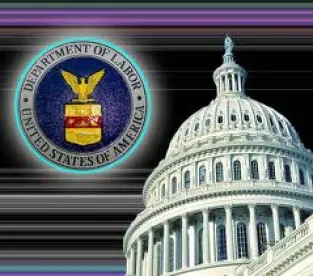The DOL has issued transition FAQs and a nonenforcement policy—meanwhile, here comes the SEC.
Just 18 days ahead of the fiduciary rule’s June 9 applicability date, Secretary of Labor Alexander Acosta penned a Wall Street Journal op-ed explaining that the Department of Labor (DOL) “found no principled legal basis to change the June 9 date” and that “[r]espect for the rule of law leads [the DOL] to the conclusion that this date cannot be postponed.” Thus, absent the unlikely intervention of the courts or US Congress, the expanded definition of fiduciary investment advice and key provisions of the exemptions will go into effect on June 9.
Nonetheless, citing the current administration’s “trust in Americans’ ability to decide what’s best for them,” and its desire to ensure investors get prudent investment advice, but without limiting choice or benefiting lawyers, Secretary Acosta stated that the DOL will continue to examine the rule and consider how to revise it. Also, Secretary Acosta noted that he hopes the Securities and Exchange Commission (SEC), with its “critical expertise in this area,” will be a full participant in this process.
Responding to Secretary Acosta’s statements, Jay Clayton, the chairman of the SEC, issued a public statement on June 1, remarking that the DOL rule “may have significant effects on retail investors and entities regulated by the SEC” as well as “broader effects on our capital markets,” and welcoming the DOL’s “invitation to engage constructively.” After noting that the SEC has long been engaged in analyzing the standards of conduct that apply to investment advisers and broker-dealers when they give advice to retail investors, Chairman Clayton indicated his belief that the SEC needs to update its assessment of the current regulatory framework, the market for retail investment advice, and market trends. Notably, Chairman Clayton identified “clarity and consistency—and in areas overseen by more than one regulatory body, coordination” as the key elements to effective oversight and regulation, and noted that such elements should be kept in mind in these efforts. To aid in this assessment, Chairman Clayton requested public comments on issues affecting retail investors and other market participants.
Along with the Secretary of Labor’s announcement, the DOL issued a third set of FAQs and a temporary nonenforcement policy (Field Assistance Bulletin (FAB) No. 2017-02). We discuss this guidance below.
What conditions apply under the new exemptions on June 9?
In FAQ 1, the DOL confirmed that the only condition that applies from June 9, 2017 to January 1, 2018 under the Best Interest Contract Exemption and the Principal Transactions Exemption is compliance with the “impartial conduct standards.” Here the DOL clarifies that the impartial conduct standards require fiduciaries to meet the following three requirements:
-
Give advice in the retirement investor’s “best interest,” which consists of two components—prudence and loyalty.

“Prudence” means the advice must meet the professional standard of care set forth in the exemption and consistent with the standard of care in Section 404 of the Employee Retirement Income Security Act (ERISA).

“Loyalty” means advice is “based on the interests of the customer, rather than the competing financial interest of the adviser or firm.”
-
Charge no more than reasonable compensation.
-
Make no misleading statements about investment transactions, compensation, and conflicts of interest. The DOL has interpreted this requirement to prohibit material omissions as well as material misstatements.
Is the requirement to “levelize” compensation required under the “impartial conduct standards”?
No. In FAQ 6, the DOL clarifies that a fiduciary can satisfy the “impartial conduct standards” without implementing “new compensation systems” (i.e., level compensation within product categories and neutral factors to support compensation differentials). Importantly, noting that that exemptions’ warranty requirements do not apply during the transition period, the DOL states that so long as fiduciaries adhere to the impartial conduct standards, “they do not violate the exemption, even if new compensation systems are not yet implemented,” and that financial institutions have “flexibility to choose precisely how to safeguard compliance with the impartial conduct standards.”
Consistent with this approach, the DOL provides various examples of alternatives to leveling compensation that include “tamping down conflicts of interest associated with adviser compensation, increased monitoring and surveillance of investment recommendations, or other approaches.” With respect to fiduciaries’ approaches to addressing conflicts, the DOL appears to recognize disclosure as an effective component of meeting the best interest standard’s duty of loyalty element, noting that financial institutions should be “candid about compensation received and limits on investments.”
Observation: The DOL’s guidance in FAQ 6 is a significant and important clarification as to how the impartial conduct standards interact with the contractual warranties required under the new exemptions. Specifically, this FAQ shows that compliance with the impartial conduct standards—particularly the duty of loyalty (which notably is fully effective during the transition period, without modification)—does not require financial institutions to adopt new compensation structures to address conflicts of interest related to investment recommendations. Rather, the FAQ reflects and confirms the position that the specific requirements previously described by the DOL regarding financial professionals’ compensation are based on the policies and procedures and warranty requirements (which are currently scheduled to become applicable on January 1, 2018) as opposed to the impartial conduct standards more generally.
This interpretation of the impartial conduct standards is consistent with the DOL’s and the courts’ interpretations of the fiduciary standards that apply under ERISA Section 404. Specifically, it appears that the DOL’s view is that the impartial conduct standards do not establish bright lines or strict requirements as to how they may be satisfied with respect to compensation arrangements. Rather, it seems that fiduciaries do have flexibility as to their approach to compliance, and that whether a fiduciary meets the impartial conduct standards will depend on the particular facts and circumstances and the fiduciary’s actual conduct vis-à-vis the client.
As stated in FAQ 6, this means that financial professionals may continue to be compensated pursuant to current variable compensation structures without such structures being deemed to result in per se violations of the impartial conduct standards, so long as the financial institution has taken other reasonable steps to identify and address any potential conflicts in providing their services.
Moreover, the DOL’s recognition that fiduciaries have flexibility in complying with the impartial conduct standards, so long as conflicts with respect to proprietary products, third-party payments, and other compensation arrangements are appropriately disclosed, may serve as an important basis for harmonizing the rules (including securities, insurance, and banking laws) that apply to providing investment advice to all retail investors.
When do the rule and exemptions become applicable?
In FAQ 11, the DOL clarifies that the rule becomes applicable at 11:59 PM local time on Friday, June 9. This is intended to give firms the weekend to test compliance systems and to address certain operational issues related to implementation.
Observation: For those of you who intend to mark the occasion, we “recommend” that you do so in a reasonable and responsible manner. Please note that our call to action with respect to how you may recognize this event was made before the rule’s applicability date. Accordingly, it is not intended and should not serve as a primary basis for your decisions in this regard.
What other topics do the FAQs cover?
Some highlights of other topics covered in the other FAQs include the following:
-
FAQ 12 clarifies that certain communications about the benefits of plan and IRA participation and increasing contributions are nonfiduciary investment education or general information.
-
FAQ 13 confirms that representations to support reliance on the exception for recommendations to independent fiduciaries with financial expertise (IFEs) can be obtained by negative consent.
-
FAQ 14 indicates that model managers may rely on an IFE even if the investment adviser implementing the model is reimbursed by passing through the charges to a plan, a plan participant, or an IRA so long as the model manager is paid from the investment adviser’s general assets, subject to certain other conditions and limitations. This clarifies a position taken in a prior FAQ.
What does the nonenforcement policy cover?
The nonenforcement policy provides that during the transition period, the DOL “will not pursue claims against fiduciaries who are working diligently and in good faith to comply with the fiduciary duty rule and exemptions, or treat those fiduciaries as being in violation of the fiduciary duty rule and exemptions.” Notably, the nonenforcement policy would not apply to any private right of action for individuals under ERISA. The policy indicates that the Treasury Department and the IRS have confirmed that the IRS similarly will not apply the Internal Revenue Code’s prohibited transaction excise tax provisions and related reporting obligations where the DOL’s policy would apply.
Is the DOL still considering changes to the rule and exemptions?
Yes. In FAQ 4, the DOL indicates that it intends to issue a Request for Information (RFI) soon for additional public input on ideas for new exemptions or regulatory changes based on public comments and market developments, including potentially creating a new streamlined exemption based upon the use of clean shares or “other innovations.” The DOL will also specifically request comments on whether a delay of the January 1, 2018 full compliance date would be helpful. We encourage interested parties to respond to the DOL’s RFI to provide input on the DOL’s proposals and to give additional comments on potential changes to the rule and exemptions.
Takeaways
As the rule becomes applicable on June 9, including the impartial conduct standards under the exemptions, the DOL’s recent guidance seems to support phased implementation as financial institutions move toward the full compliance date, which is currently scheduled for January 1, 2018. Though the scope of potential changes to the rule and exemptions in advance of January 1 is currently unclear, we expect that additional changes may be considered and potentially made. We will continue to provide observations and in-depth analysis as more definitive information develops.





 />i
/>i

